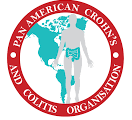Assessment of gastric-acid suppressants prescribing at an internal medicine service of a tertiary hospital in Latin America: A retrospective record review study
DOI:
https://doi.org/10.47892/rgp.2022.424.1418Keywords:
Gastric Acid, Prescription Drug Overuse, Proton Pump Inhibitors, Inappropriate PrescribingAbstract
Gastric-acid suppressants are one of the most frequently used classes of drugs worldwide. Several studies about their overprescribing have been carried out in recent years. The aim of the study was to assess the appropriateness of these drugs at an internal medicine service of a tertiary hospital in Venezuela. A retrospective record review of patients admitted to the internal medicine service from January 2020 to February 2021 was performed. Data about indications for gastric-acid suppressants, the type used, and their continuation at discharge were collected. The prescribing was grouped into two categories, appropriate or inappropriate, according to current clinical guidelines. Of the 1203 patients who were newly prescribed gastric-acid suppressants in hospital during the study period, 993 (82.5%) had an inappropriate prescription. Prophylaxis of peptic ulcers in low-risk patients was the most frequent no evidence-based indication (20.24%). Seven hundred sixty-two patients were discharged on gastric-acid suppressants. Of these, 74.7% did not have an acceptable indication to continue this treatment on an outpatient basis. Many hospitalized patients in a Venezuelan academi re given gastric acid suppressants not in accordance with the current clinical practice guidelines.
Downloads
Metrics
References
Peery AF, Crockett SD, Murphy CC, et al. Burden and Cost of Gastrointestinal, Liver, and Pancreatic Diseases in the United States: Update 2018. Gastroenterology. 2019 Jan;156(1):254-272 e11. doi: 10.1053/j.gastro.2018.08.063. PubMed PMID: 30315778; PubMed Central PMCID: PMCPMC6689327.
Abrahami D, McDonald EG, Schnitzer M, et al. Trends in acid suppressant drug prescriptions in primary care in the UK: a population-based cross-sectional study. BMJ Open. 2020 Dec 7;10(12):e041529. doi: 10.1136/bmjopen-2020-041529. PubMed PMID: 33293322; PubMed Central PMCID: PMCPMC7722810.
Posada Bustos S, De León Fernández N, González Morales R, et al. Prevalence of Inappropriate Prescription of Acid Suppression Therapy among Adults Hospitalized at a General Hospital in Bogotá. Rev Colomb Gastroenterol. 2018;33:16-21. doi: 10.22516/25007440.236.
Bustillos H, Leer K, Kitten A, et al. A cross-sectional study of national outpatient gastric acid suppressant prescribing in the United States between 2009 and 2015. PLoS One. 2018;13(11):e0208461. doi: 10.1371/journal.pone.0208461. PubMed PMID: 30500865; PubMed Central PMCID: PMCPMC6267968.
Pham CQ, Regal RE, Bostwick TR, et al. Acid suppressive therapy use on an inpatient internal medicine service. Ann Pharmacother. 2006 Jul-Aug;40(7-8):1261-6. doi: 10.1345/aph.1G703. PubMed PMID: 16804095.
Centers for Disease Control and Prevention. National Ambulatory Medical Care Survey: 2018 National Summary Tables. Available from: https://www.cdc.gov/nchs/data/ahcd/namcs_summary/2018-namcs-web-tables-508.pdf
Savarino V, Marabotto E, Zentilin P, et al. Proton pump inhibitors: use and misuse in the clinical setting. Expert Rev Clin Pharmacol. 2018 Nov;11(11):1123-1134. doi: 10.1080/17512433.2018.1531703. PubMed PMID: 30295105.
Strand DS, Kim D, Peura DA. 25 Years of Proton Pump Inhibitors: A Comprehensive Review. Gut Liver. 2017 Jan 15;11(1):27-37. doi: 10.5009/gnl15502. PubMed PMID: 27840364; PubMed Central PMCID: PMCPMC5221858.
Metaxas ES, Bain KT. Review of Proton Pump Inhibitor Overuse in the US Veteran Population. J Pharm Technol. 2015 Aug;31(4):167-176. doi: 10.1177/8755122515575177. PubMed PMID: 34860933; PubMed Central PMCID: PMCPMC5990187.
Willems RPJ, van Dijk K, Ket JCF, et al. Evaluation of the Association Between Gastric Acid Suppression and Risk of Intestinal Colonization With Multidrug-Resistant Microorganisms: A Systematic Review and Meta-analysis. JAMA Intern Med. 2020 Apr 1;180(4):561-571. doi: 10.1001/jamainternmed.2020.0009. PubMed PMID: 32091544; PubMed Central PMCID: PMCPMC7042870.
Yang Y, George KC, Shang WF, et al. Proton-pump inhibitors use, and risk of acute kidney injury: a meta-analysis of observational studies. Drug Des Devel Ther. 2017;11:1291-1299. doi: 10.2147/DDDT.S130568. PubMed PMID: 28479851; PubMed Central PMCID: PMCPMC5411168.
Schmilovitz-Weiss H, Gingold-Belfer R, Peleg N, et al. Use of proton pump inhibitors is associated with lower rates of first-time ischemic stroke in community-dwelling elderly. Br J Clin Pharmacol. 2021 Mar;87(3):1187-1193. doi: 10.1111/bcp.14488. PubMed PMID: 32692459.
Sehested TSG, Gerds TA, Fosbol EL, et al. Long-term use of proton pump inhibitors, dose-response relationship and associated risk of ischemic stroke and myocardial infarction. J Intern Med. 2018 Mar;283(3):268-281. doi: 10.1111/joim.12698. PubMed PMID: 29024109.
Jamshed S, Bhagavathula AS, Zeeshan Qadar SM, et al. Cost-effective Analysis of Proton Pump Inhibitors in Long-term Management of Gastroesophageal Reflux Disease: A Narrative Review. Hosp Pharm. 2020 Oct;55(5):292-305. doi: 10.1177/0018578719893378. PubMed PMID: 32999499; PubMed Central PMCID: PMCPMC7502866.
Peery AF, Dellon ES, Lund J, et al. Burden of gastrointestinal disease in the United States: 2012 update. Gastroenterology. 2012 Nov;143(5):1179-1187 e3. doi: 10.1053/j.gastro.2012.08.002. PubMed PMID: 22885331; PubMed Central PMCID: PMCPMC3480553.
Ladd AM, Panagopoulos G, Cohen J, et al. Potential costs of inappropriate use of proton pump inhibitors. Am J Med Sci. 2014 Jun;347(6):446-51. doi: 10.1097/MAJ.0b013e31829f87d5. PubMed PMID: 24270078.
Grant K, Al-Adhami N, Tordoff J, et al. Continuation of proton pump inhibitors from hospital to community. Pharm World Sci. 2006 Aug;28(4):189-93. doi: 10.1007/s11096-006-9028-4. PubMed PMID: 17066244.
Liu L, Yu Y, Fan Q, et al. Impact of proton pump inhibitor management committee's multifaceted interventions on acid suppressant prescribing patterns in outpatient and emergency departments. BMC Health Serv Res. 2022 Mar 29;22(1):417. doi: 10.1186/s12913-022-07820-x. PubMed PMID: 35351121; PubMed Central PMCID: PMCPMC8966235.
Forgacs I, Loganayagam A. Overprescribing proton pump inhibitors. BMJ. 2008 Jan 5;336(7634):1-2. doi: 10.1136/bmj.39416.559942.BE. PubMed PMID: 18063610; PubMed Central PMCID: PMCPMC2174766.
Faul F, Erdfelder E, Lang AG, et al. G*Power 3: a flexible statistical power analysis program for the social, behavioral, and biomedical sciences. Behav Res Methods. 2007 May;39(2):175-91. doi: 10.3758/bf03193146. PubMed PMID: 17695343.
Kang H. Sample size determination and power analysis using the G*Power software. J Educ Eval Health Prof. 2021;18:17. doi: 10.3352/jeehp.2021.18.17. PubMed PMID: 34325496; PubMed Central PMCID: PMCPMC8441096.
Laine L, Nagar A. Long-Term PPI Use: Balancing Potential Harms and Documented Benefits. Am J Gastroenterol. 2016 Jul;111(7):913-5. doi: 10.1038/ajg.2016.156. PubMed PMID: 27113114.
Centers for Medicare & Medicaid Services. Proton Pump Inhibitors: Use in Adults. Available from: https://www.cms.gov/Medicare-Medicaid-Coordination/Fraud-Prevention/Medicaid-Integrity-Education/Pharmacy-Education-Materials/Downloads/ppi-adult-factsheet11-14.pdf
Martin-Echevarria E, Pereira Julia A, Torralba M, et al. [Assessing the use of proton pump inhibitors in an internal medicine department]. Rev Esp Enferm Dig. 2008 Feb;100(2):76-81. doi: 10.4321/s1130-01082008000200003. PubMed PMID: 18366264.
Akram F, Huang Y, Lim V, et al. Proton pump inhibitors: Are we still prescribing them without valid indications? Australas Med J. 2014;7(11):465-70. doi: 10.4066/AMJ.2014.2093. PubMed PMID: 25550719; PubMed Central PMCID: PMCPMC4259212.
Gupta R, Garg P, Kottoor R, et al. Overuse of acid suppression therapy in hospitalized patients. South Med J. 2010 Mar;103(3):207-11. doi: 10.1097/SMJ.0b013e3181ce0e7a. PubMed PMID: 20134378.
Meli M, Raffa MP, Malta R, et al. The use of proton pump inhibitors in an Italian hospital: focus on oncologic and critical non-ICU patients. Int J Clin Pharm. 2015 Dec;37(6):1152-61. doi: 10.1007/s11096-015-0178-0. PubMed PMID: 26319396.
van den Bemt PM, Chaaouit N, van Lieshout EM, et al. Noncompliance with guidelines on proton pump inhibitor prescription as gastroprotection in hospitalized surgical patients who are prescribed NSAIDs. Eur J Gastroenterol Hepatol. 2016 Aug;28(8):857-62. doi: 10.1097/MEG.0000000000000634. PubMed PMID: 27046006.
Bustamante Robles KY, Ticse Aguirre R, Cánepa Rondo IF, et al. [Frequency of proton pump inhibitor prescription based in clinical practice guidelines in hospitalized patients in two academic hospitals in Lima, Peru]. Revista de gastroenterologia del Peru : organo oficial de la Sociedad de Gastroenterologia del Peru. 2012 Jan-Mar;32(1):44-9. PubMed PMID: 22476177; spa.
Downloads
Published
How to Cite
Issue
Section
License
Revista de Gastroenterología del Perú by Sociedad Peruana de Gastroenterología del Perú is licensed under a Licencia Creative Commons Atribución 4.0 Internacional..
Aquellos autores/as que tengan publicaciones con esta revista, aceptan los términos siguientes:
- Los autores/as conservarán sus derechos de autor y garantizarán a la revista el derecho de primera publicación de su obra, el cuál estará simultáneamente sujeto a la Licencia de reconocimiento de Creative Commons que permite a terceros compartir la obra siempre que se indique su autor y su primera publicación esta revista.
- Los autores/as podrán adoptar otros acuerdos de licencia no exclusiva de distribución de la versión de la obra publicada (p. ej.: depositarla en un archivo telemático institucional o publicarla en un volumen monográfico) siempre que se indique la publicación inicial en esta revista.
- Se permite y recomienda a los autores/as difundir su obra a través de Internet (p. ej.: en archivos telemáticos institucionales o en su página web) antes y durante el proceso de envío, lo cual puede producir intercambios interesantes y aumentar las citas de la obra publicada. (Véase El efecto del acceso abierto).



















 2022
2022 